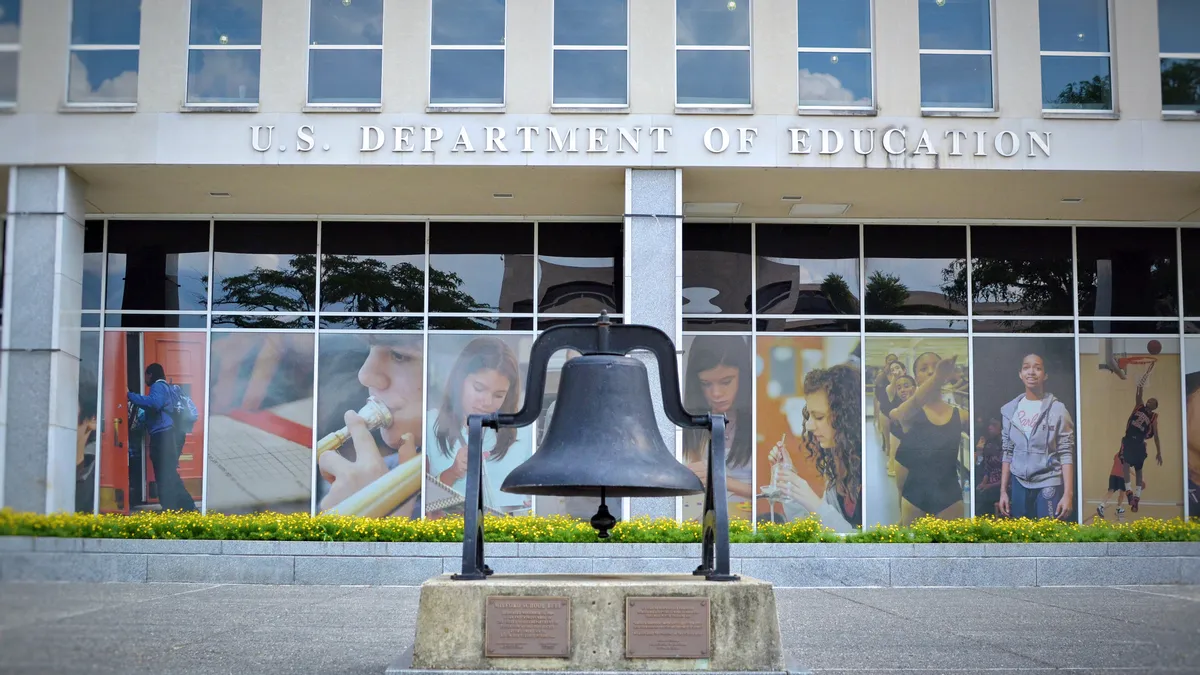Dive Brief:
-
Kansas' community colleges are opposing a proposal that would allow the state's two-year schools to merge with its four-year institutions without lawmakers' approval.
-
Current state law mandates that the legislature and the governor sign off on such arrangements. Eliminating this requirement would "give institutions the flexibility to meet the needs of students and the Kansas economy," a board of regents advisory group wrote in a recent report.
-
Consolidation proposals among state higher education systems haven't slowed during the pandemic.
Dive Insight:
The Kansas Legislature this year demanded that the state's board of regents develop several long-term plans for its colleges. In response, the board created a group that last month delivered recommendations on access, equity and social mobility, and the state's higher education structure.
Among those suggestions was that the governing board pursue a bill that would eliminate the need for legislation when one of the state's community colleges might consolidate with a four-year school. State law allows two-year schools to merge with each other without this step.
But community college leaders came out against the plan at the board's virtual meeting last month. Dennis Rittle, president of Cowley College, a two-year school, alerted regents at the meeting that the community colleges would not support such a bill.
Rittle told the regents that the community colleges felt legislative involvement was needed to work out "intended or unintended consequences" of the mergers or affiliations.
"We understand that this is a sensitive topic, and it's one we don't want to have derailed by any means," but the community college heads wanted to be clear about their position, Rittle said during the meeting.
A regent board spokesperson did not immediately respond to Higher Ed Dive's request for comment. Rittle also did not respond to a request for comment by publication time.
The state's last attempt at consolidating a two- and four-year school was in 2014, with a proposal to unite Fort Hays State University and Dodge City Community College. It fell apart following a deadlocked vote by the latter's governing board. Detractors had financial concerns and feared the community college would lose its identity.
Consolidations can be controversial, as colleges often are economic engines in their regions. Shutting down an institution — even just by name — can spark significant backlash.
The process also varies by state.
A new proposal suggests three institutions in the Vermont State Colleges System be combined with a single leadership team and accreditation. Connecticut is trying to integrate its dozen community colleges into a single, accredited entity. And Pennsylvania's higher education system is trying to distill six of its universities into two pairs that would focus, respectively, on online education and stackable credentials.














